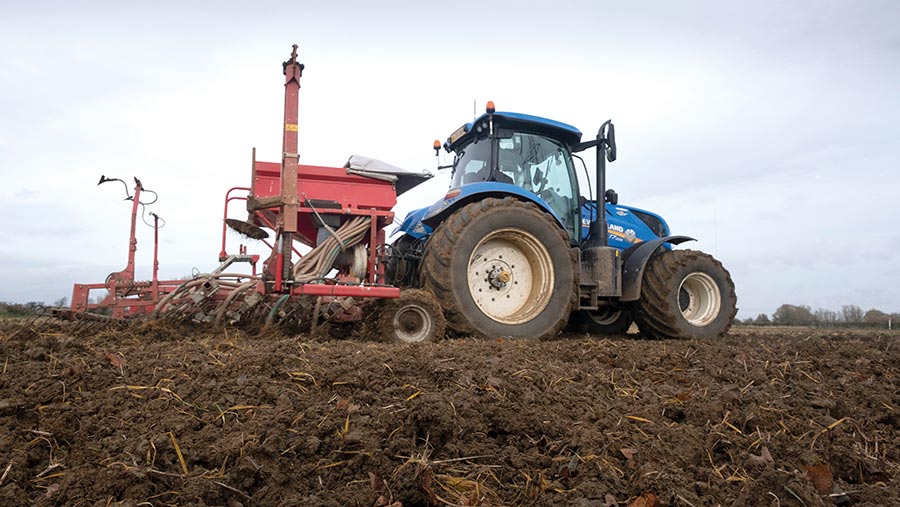ELM payments will ‘go beyond’ income foregone – eventually
 © Tim Scrivener
© Tim Scrivener Payments to farmers who protect soil and water will be among the first available as the government phases in its Environmental Land Management (ELM) scheme.
The first payments will encourage better soil health, improved water quality, integrated pest management and hedgerow management.
These options will be open to all farmers in England as soon as 2022 or 2023.
See also: Pressure mounts on Defra to help farmers make green switch
Defra secretary George Eustice is due to announce full details of the long-awaited scheme in the coming days.
The intention is that ELM will be phased in as direct payments to farmers are phased out – and fully up and running by 2024.
Initially, farmers will be paid on an income foregone basis – including under a Sustainable Farming Incentive (SFI) designed to bridge the gap as basic payments are wound down and the ELM scheme is fully implemented.
See also: Details emerge of Defra’s ‘stepping stone’ support scheme
Reward not compensation
Eventually, though, payments will “go beyond” compensating farmers for lost income as they undertake environmental work on their land, said Mr Eustice during a Q&A session for the Country Land and Business Association’s (CLA) Rural Powerhouse Week.
“Crucially, the new ELM scheme that we are introducing will go beyond income foregone – we are clear about this,” he said.
“You’ve got to be able to reward [farmers] for it, not just compensate them for their loss for going a good turn for the environment.”
SFI payments for protecting soil and water are expected to be among those made on an income foregone basis.
But ELM scheme payments made for higher level nature recovery and landscape improvement are expected to be more outcome-based.
Either way, the CLA has warned the ELM scheme must align with the interests of farmers and land managers to be a success. (See also: What farmers are thinking about the ELM scheme.)
Stumbling block
Exactly how these outcome-based payments will be calculated remains to be seen.
Putting a value on a farm’s natural capital and the environmental benefits provided by growers and livestock producers is proving to be a stumbling block.
“Getting to a natural capital valuation is the aspiration, but this is proving very difficult to achieve for the majority of outcomes,” said Rob Cooke, director of EU Transition at Natural England.
Mr Cooke said the SFI was likely to be a “standards-based” model rather than a prescriptive one, as Defra developed a simpler, more straightforward way for farmers to participate in agri-environment schemes.
Targets would apply to features such as arable and grassland soils, watercourse buffering, hedgerows, semi-improved grassland, on-farm woodland and tree planting.
Farmers would be recognised for good practice and paid accordingly.
“There will be a basket of actions to choose from, depending on the farm or land type, making it suitable for most,” explained Mr Cooke.
